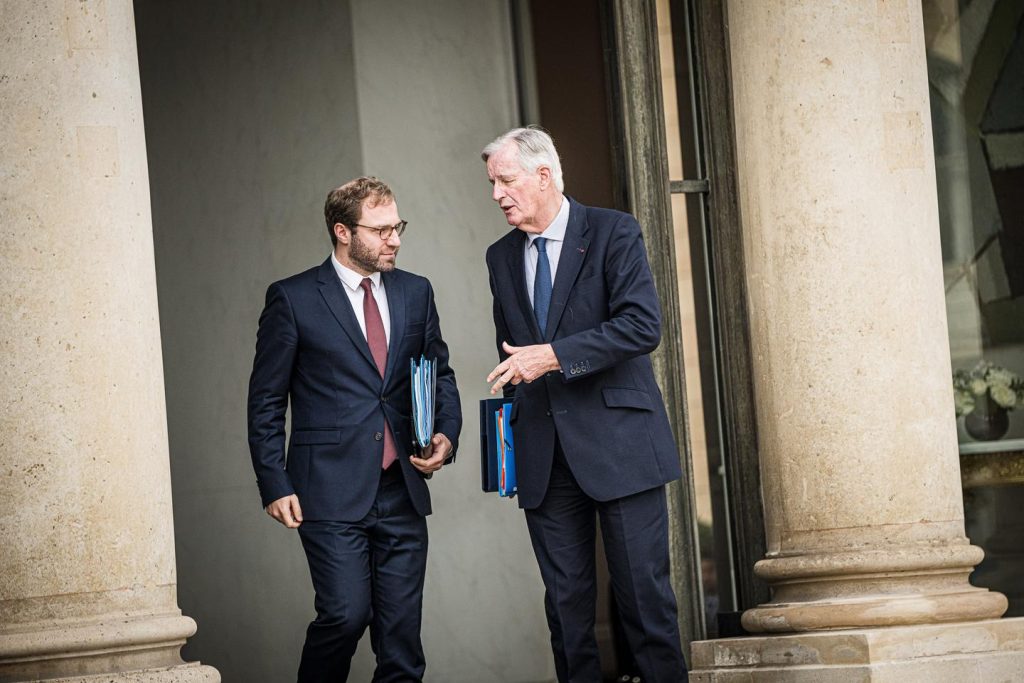The French government, led by Prime Minister Michel Barnier, has released a medium-term budget plan aimed at reducing public spending in order to bring the public deficit to less than 3% of the gross domestic product (GDP) by 2029. The plan, which consists of a 218-page document, proposes a gradual reduction in the deficit over the next few years, with a focus on increasing tax revenues. The goal is to convince the European Union to grant France until 2029 to achieve this target, similar to the “austerity turn” negotiated in 1983 to maintain stability in the European monetary system despite economic challenges.
In order to meet the EU’s requirements and reduce the public deficit by an average of 0.76 percentage points of GDP per year, France has proposed an annual “structural effort” of 0.78 percentage points of GDP until 2031. The plan includes a significant adjustment in 2025, where the public deficit would be reduced from 6.1% to 5% of GDP in just one year. The government plans to achieve this primarily through increases in taxes and other revenues, with 70% of the structural effort coming from these measures, including a surtax on large corporations.
The government’s budget plan for 2025 highlights a focus on increasing tax revenues as a means to quickly reduce the public deficit before additional structural measures can be implemented. While the document outlines some future savings strategies, such as restructuring public institutions and eliminating inefficient expenses, the specifics of these measures remain somewhat vague. The government aims to present more detailed plans in future financial documents, with the goal of reducing expenses and prioritizing essential services.
One of the proposed strategies to reduce public spending includes merging similar public institutions, such as Business France and Atout France, to reduce expenses by 10% by 2029. Additionally, a review of public expenditures to identify and eliminate non-essential or inefficient spending could potentially save at least 5 billion euros between 2025 and 2027. The government’s focus on identifying areas for cost savings reflects the need to address the public deficit and meet the EU’s requirements for fiscal stability.
The French government’s budget plan has been submitted to the European Commission for review, with a decision expected to be made on November 26. The plan outlines a strategic approach to reducing public spending and increasing tax revenues to achieve fiscal stability in the coming years. By implementing a combination of short-term tax increases and longer-term structural reforms, the government aims to address the public deficit and ensure economic sustainability in line with EU guidelines.
Overall, the French government’s budget plan for 2025 reflects a commitment to reducing public spending and increasing tax revenues to address the country’s public deficit. The plan includes a mix of short-term tax increases and longer-term structural reforms to achieve fiscal stability and meet the EU’s requirements for deficit reduction. Through a strategic approach to public finance management, the government aims to achieve economic sustainability and maintain stability in the European monetary system.















